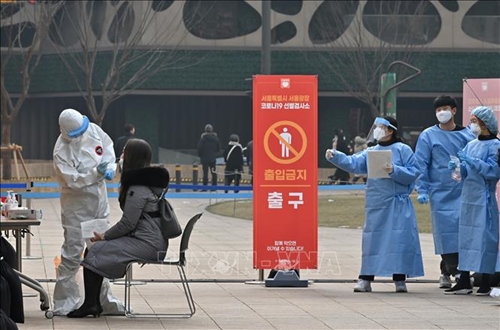The temporary extension of stay will apply to the E-9 non-professional employment and H-2 visiting employment visa holders, whose period of staying and working in the RoK is set to expire between April 13 and December 31.
    |
 |
|
Taking sample for COVID-19 testing in RoK (Photo for illustration) |
Local media reported that the extraordinary measure will be implemented in consideration of COVID-19-related travel restrictions faced by migrant workers and labour shortages at domestic industrial, farming and fishing businesses.
The RoK’s labour and justice ministries said 62,239 E-9 visa holders eligible for the special measure will all be allowed to extend their period of stay and work activities by one year.
In the case of 52,357 eligible H-2 visa holders, confirmation on whether they are legally employed or not is needed prior to the extension of stay, they said, noting a maximum of 114,596 foreigners may benefit from the measure.
According to the Korean government’s data, the number of foreign workers arriving in the country with E-9 visas fell sharply from 51,365 in 2019 to 6,688 last year, due mainly to massive cancellations of international flights caused by the coronavirus outbreak.
Arrivals of H-2 visa holders also dived from 63,339 to 6,044 in the same period.
Thus, the number of E-9 visa holders staying in the RoK stood at 237,000 as of the end of last year, marking a fall of 14.4 percent from 277,000 a year earlier, while H-2 visa workers also shrank 31.4 percent from 226,000 to 155,000.
The steep reductions in E-9 and H-2 visa holders have worsened labour shortages at small and medium-sized companies and in farming and fishing villages.
Source: VNA